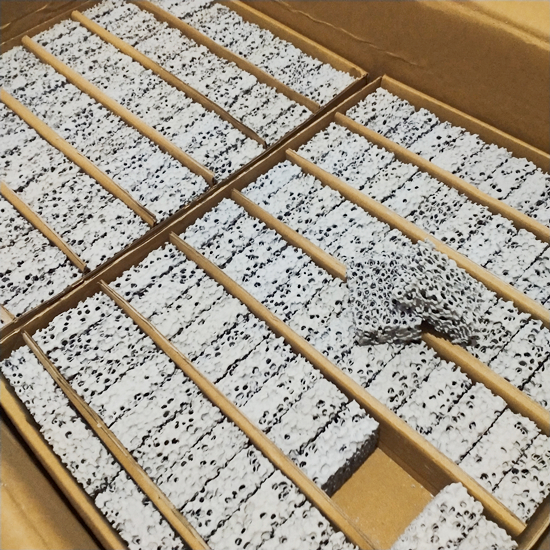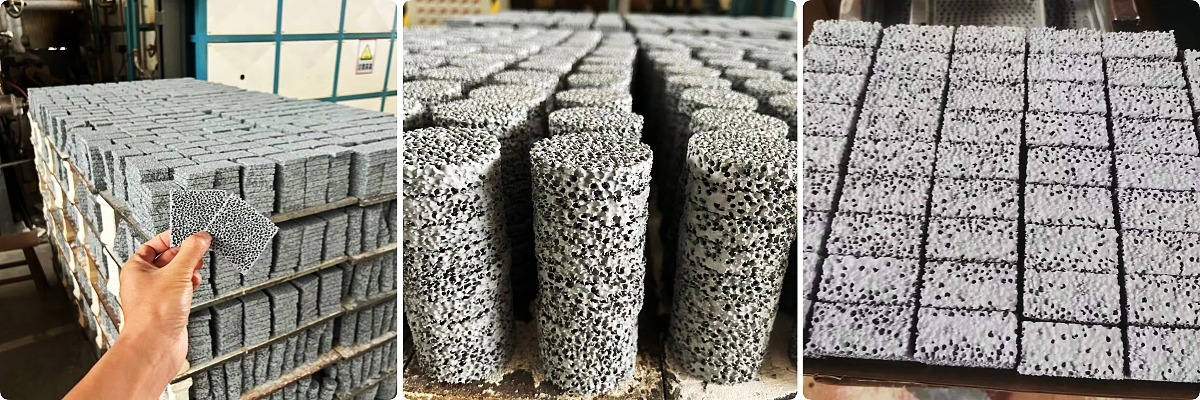How to Improve Foundry Efficiency with SIC Ceramic Foam Filters
Efficiency is a critical aspect of any foundry operation. The ability to cast high-quality metal products while minimizing defects and reducing waste is essential for a successful foundry. One of the key technologies contributing to improved efficiency in metal casting is SIC Ceramic Foam Filters.
Understanding SIC Ceramic Foam Filters
SIC ceramic foam filters are advanced filtration devices used in foundries to remove impurities and contaminants from molten metal. They are made from silicon carbide (SiC) and have a highly porous structure that effectively captures and holds unwanted particles. These filters are widely used in the casting of various metals, including aluminum, steel, and copper.
How SIC Ceramic Foam Filters Work
The success of SIC ceramic foam filters lies in their unique design. The open-cell structure of the filter provides a high surface area for the molten metal to flow through. As the metal passes through the filter, impurities such as oxides, slag, and inclusions are trapped within the filter's pores. This results in cleaner and purer metal that is less prone to defects.
Benefits of Using SIC Ceramic Foam Filters
Improved Casting Quality: By removing impurities, SIC ceramic foam filters lead to superior casting quality with fewer defects, such as porosity and inclusions. This results in products that meet stringent quality standards.
Reduced Rework and Scrap: Cleaner metal reduces the need for costly rework or the scrapping of defective castings. This minimizes waste and improves cost-effectiveness.
Enhanced Flow Control: SIC ceramic foam filters can help control the flow of molten metal during casting, ensuring a consistent and uniform filling of molds.
Extended Tool Life: Reduced impurities in the metal can extend the life of casting tools and molds, saving on replacement costs.
Environmental Benefits: Cleaner casting processes lead to reduced emissions and waste, making foundries more environmentally friendly.
Lower Operating Costs: The reduction in defects, rework, and scrap translates into lower operating costs and improved profitability for foundries.
Implementing SIC Ceramic Foam Filters in Foundry Operations
To make the most of SIC ceramic foam filters, foundries need to follow these key steps:
Filter Selection: Choose the right filter size and type based on the specific metal and casting process.
Proper Placement: Ensure that filters are correctly positioned in the gating system to maximize their effectiveness.
Preheating: Preheat the filters to prevent thermal shock when the hot metal contacts them.
Quality Control: Implement quality control measures to monitor and maintain filter performance.
SIC ceramic foam filters have become indispensable tools for foundries looking to enhance efficiency and product quality. By removing impurities and contaminants from molten metal, these filters lead to cleaner and more reliable castings, reducing the need for rework and scrap. Foundries that adopt SIC ceramic foam filters can improve their operations, lower costs, and contribute to a more sustainable and environmentally friendly metal casting industry.
Previous: What types of designs and subjects can marble statues depict?
Next: Advantages of Hot Dipped Galvanized Water Tanks for Rural Water Storage
If you are interested in sending in a Guest Blogger Submission,welcome to write for us!






Comments
0